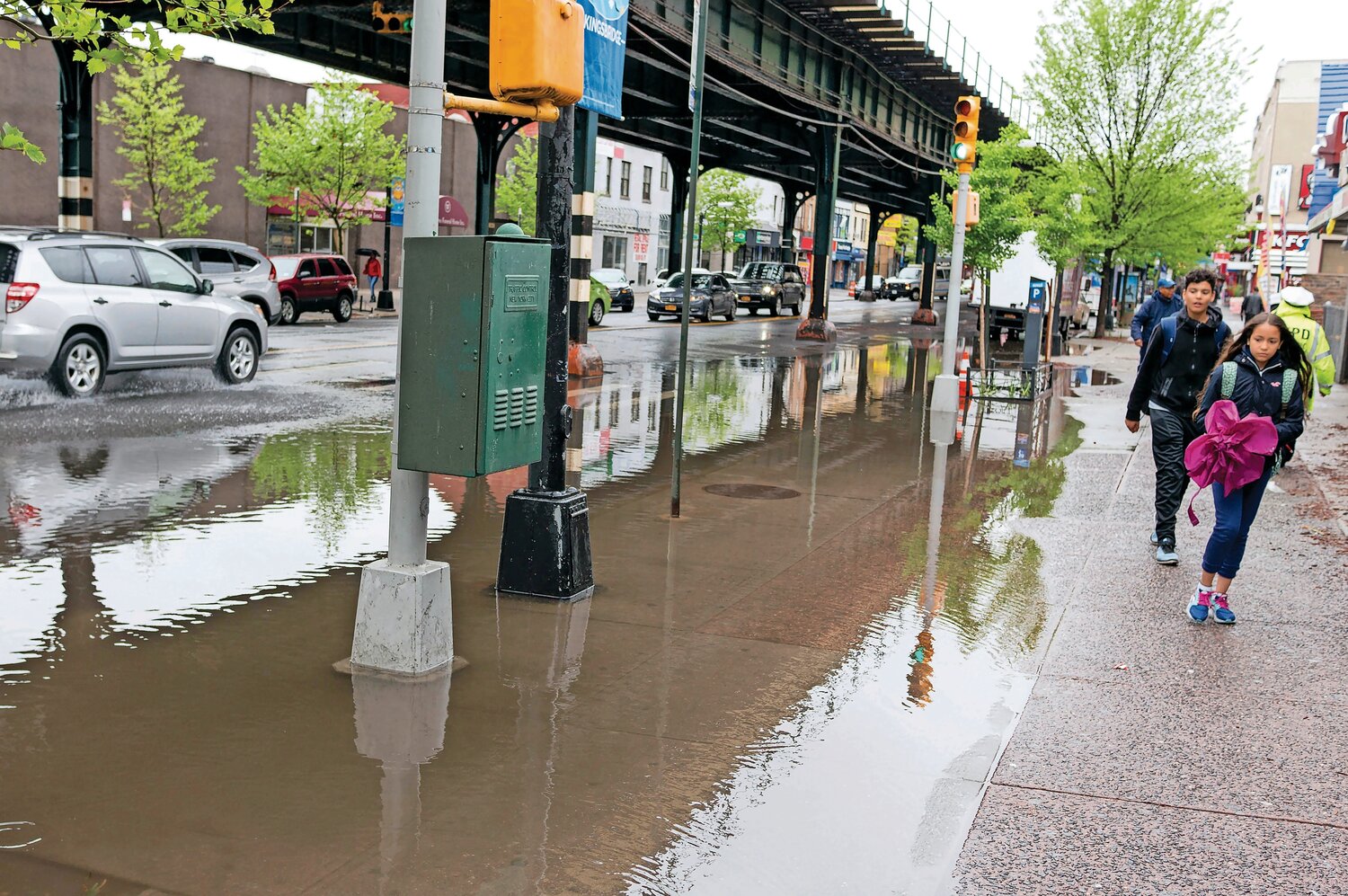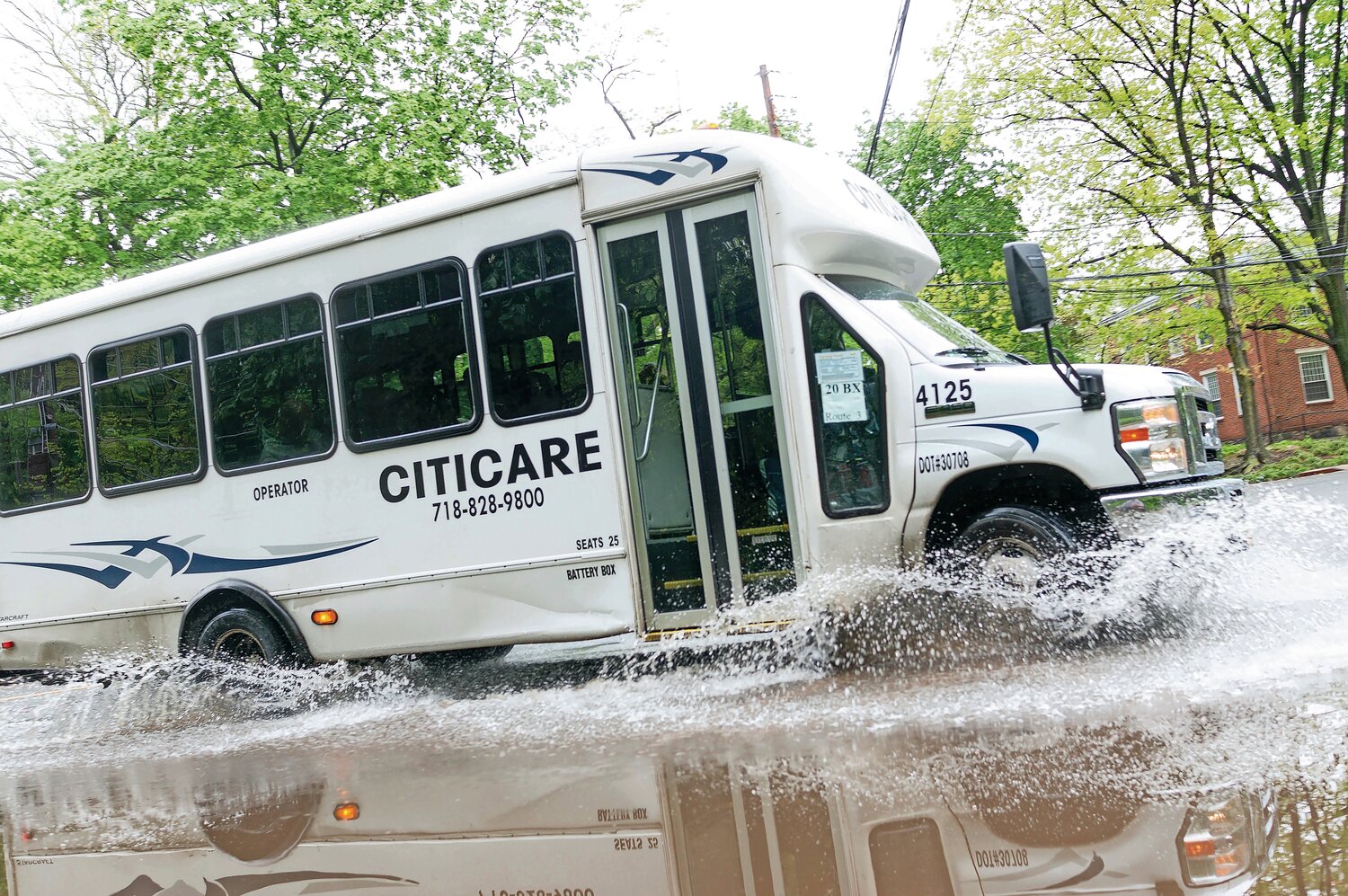Climate-change bill on its way to governor
Years worth of greenhouse gas emissions are coming back to bite big oil companies in the rear.
Rear pocket, that is.
The climate-change superfund act passed the Senate and Assembly floor June 8 and is now awaiting approval from Gov. Kathy Hochul.
The bill states decades of research have found fossil-fuel companies can be directly linked to their share of the release of greenhouse gasses over the last 70 years and directs these companies to be held accountable for their emissions.
“This bill is the most important piece of environmental legislation that we’ve passed in recent years,” Assemblyman Jeffrey Dinowitz, one of the bill’s primary sponsors, said.
Dinowitz introduced the legislation and first brought it to the Assembly in 2022. He said he spent the better half of two hours arguing the bill on the Assembly floor before it was finally be approved at 3 a.m., at the close of the most recent legislative session.
Jessica Haller, former president and current board member of the Riverdale Nature Preservancy, said the superfund act is a positive step.
“We’re never going to wake up and say we’ve solved climate change but we have to pick an achievable battle and I think this was one,” Haller said.
Haller said resilience in work like this is so important, not giving up the fight for legislation and funding for projects the city needs because the work is never done.
As an example, the greater Riverdale area is no stranger to regularly-occurring rain or the city’s outdated sewer system.
Haller said the Major Deegan, which runs through Van Cortlandt Park and the Kingsbridge neighborhood, has a history of major flooding. She recalls remnants of Hurricane Ida in 2021 flooding the parkway and trapping drivers on the roadway for hours.
The Major Deegan should be cause for concern, Haller said. As an interstate, it should warrant state money.
The greater Riverdale area is also home to Tibbets Brook, which runs through Van Cortlandt Park and flows into the Harlem River. During major rain events, the inundation of rain triggers a system override that reroutes sewage from the treatment plant directly into the Harlem River, emptying raw sewage into the waterway. The $100 billion superfund bill could fix problems like this one.
“There is a countless list of things that have to be done to fix things that have already happened,” Dinowitz said. “This is about helping to pay for the things that have already happened that were primarily caused by the fossil-fuel companies.”
The Metro-North line runs alongside the Hudson River, including neighborhood stops like Riverdale and Spuyten-Duyvil. Dinowitz said the railroad tracks are nearly level with the river, adding it to the list of things already facing problems that must be addressed.
The superfund legislation will focus on oil companies that have contributed the most significantly to the release of greenhouse gasses, some of which date back as far as 70 years of emissions.
All money collected will then be put into a climate-change adaptation cost recovery program, which will become a fund for New York state public entities to draw from for projects designed to adapt and repair the negative impacts of climate change.
Part of the legislation includes a climate-change adaptation master plan, to be created two years after its implementation, which would determine where funds go across the state.
Dinowitz said the legislation is not a tax nor is it a punishment, it is a remedy seeking compensation for the years worth of unmitigated greenhouse-gas emissions.
“The three largest domestic oil and gas producers made a combined $85.6 billion in profits in 2023,” reads the bills, in part.
The largest oil company in production is Saudi Aramco, a Saudi Arbian-owned and operated company that brought in $121 billion in 2023 alone. Aramco reported its 2023 direct greenhouse gas emissions to be 54.5 million metric tons.
For further context, the North Dakota Ethanol Council estimates 54.5 million metric tons is the equivalent of an additional 12 million cars driving on the roads for an entire year.
For the fiscal year of 2023-24 the New York City expected to spend $829 million solely for climate adaptation and resilience. Projects the city wants to draw from the recovery program would include upgrading the city’s sewer system to handle “regularly-occurring” rain events, which would cost the city an estimated $100 billion.
Karen Argenti, member of the Bronx Council for Environmental Quality, said this legislation is exciting and she’s proud to have Dinowitz leading the charge for the state. The superfund act is the second of its kind in the nation, with Vermont having passed a similar bill earlier this year.
Argetni said she expects the funds from the recovery program will help pay for local issues related to the flooding and the sewer system.
“Polluters must pay,” she said.
Dinowitz said the loudest objection he has heard in relation to the legislation is that oil companies will retaliate by passing the extra cost to consumers.
“My response to that is it’s a scare tactic and it’s not true,” Dinowitz said. “The cost of gas at the pump is determined on a worldwide market, not solely on what is happening in New York.”
The Assemblyman further argued only some companies are being assessed this fee and the ones that are not would not have to raise prices to compensate. And if the assessed companies did raise their prices, they would price themselves out of the gasoline market.
Dinowitz said he’s certain oil companies will want their day in court to fight the bill, but he thinks paying this money is the least they can do.
Hochul has no designated timeline to approve the superfun bill, as it is just one of many bills passed this legislative session.
Even so, Dinowitz said, he hopes she approves the bill and he’ll be disappointed if she doesn’t.









